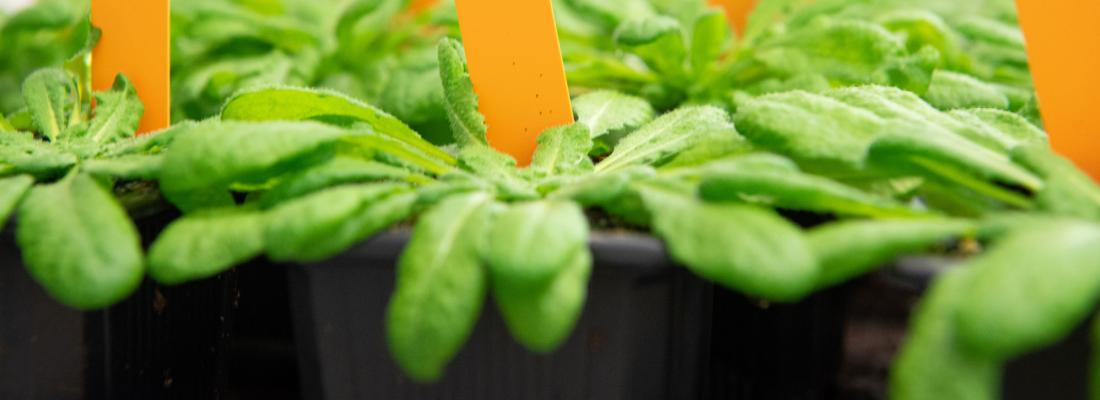Biodiversity Reading time 2 min
Scientists identify a set of bacterial genes essential for colonising plant roots
Published on 18 December 2023

Like humans and animals, plants co-exist and interact with the millions of microorganisms, such as bacteria and fungi, that make up their microbiota, especially in their roots. Over the last 20 years, several studies have demonstrated the importance of microbiota in the growth and survival of a plant at all stages of its life. This microbiota plays a crucial role in the assimilation of nutrients and minerals in the soil. It also increases a plant’s tolerance to different types of stress and its resistance to disease. While scientists had an accurate view of microbiota structure, shortcomings in analytical tools prevented them from discovering the processes used by complex microbial communities to colonise roots.
Taking apart and building root microbiota
To accurately study the microbiota of plants, researchers used thale cress (Arabidopsis thaliana), a model plant in research. After isolating the plant’s microbiota, they cultivated and identified its different strains of bacteria and fungi. Building on this collection of microorganisms at the Max Planck Institute, the team reconstructed a simplified but representative microbiota that was then inoculated into thale cress grown in sterile conditions — and therefore devoid of microbiota — to study how the bacteria colonised the roots. Using advanced transcriptomic (gene expression) analysis, researchers found over 3,000 microbial genes active at the soil-root interface. They then studied the functions of these genes in greater detail.
Three genes essential for plant colonisation
By inactivating genes within a bacterium of this synthetic microbiota, the research team identified three essential genes that are conserved in the genomes of bacteria. If one of these genes is inactivated, bacteria are unable to colonise the roots. One gene regulates virulence in bacteria and their response to environmental stress. Another is active in the transport of compounds across the bacterial membrane. The third, in fact a set of four genes working together, allows the bacterium to measure phosphate levels in the environment and adapt its metabolism accordingly. Researchers believe that the three genes allow bacteria to adapt to very different environments, and therefore colonise living hosts. The genes are conserved in the many bacteria that have co-evolved with their host plants over millions of years. Researchers also point out that in addition to their presence in all the bacteria of the plant microbiota, these genes are used by other bacteria to colonise mammals.
These findings pave the way for new research to promote the abundance of bacteria that are beneficial to their host’s health, whether plant or animal. Thus, these results are a step forward in harnessing the power of microbiota for sustainable agriculture and health.
REFErence
Vannier N., Mesny F., Getzke F. et al. (2023). Genome-resolved metatranscriptomics reveals conserved root colonization determinants in a synthetic microbiota. Nat Commun 14, 8274, https://doi.org/10.1038/s41467-023-43688-z
